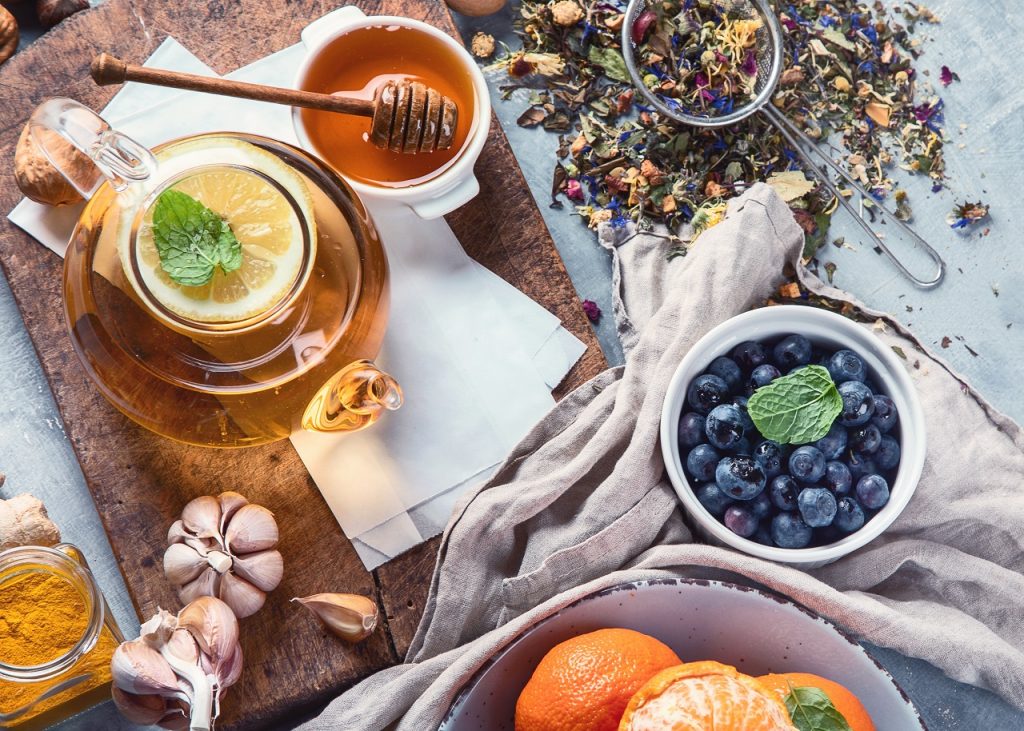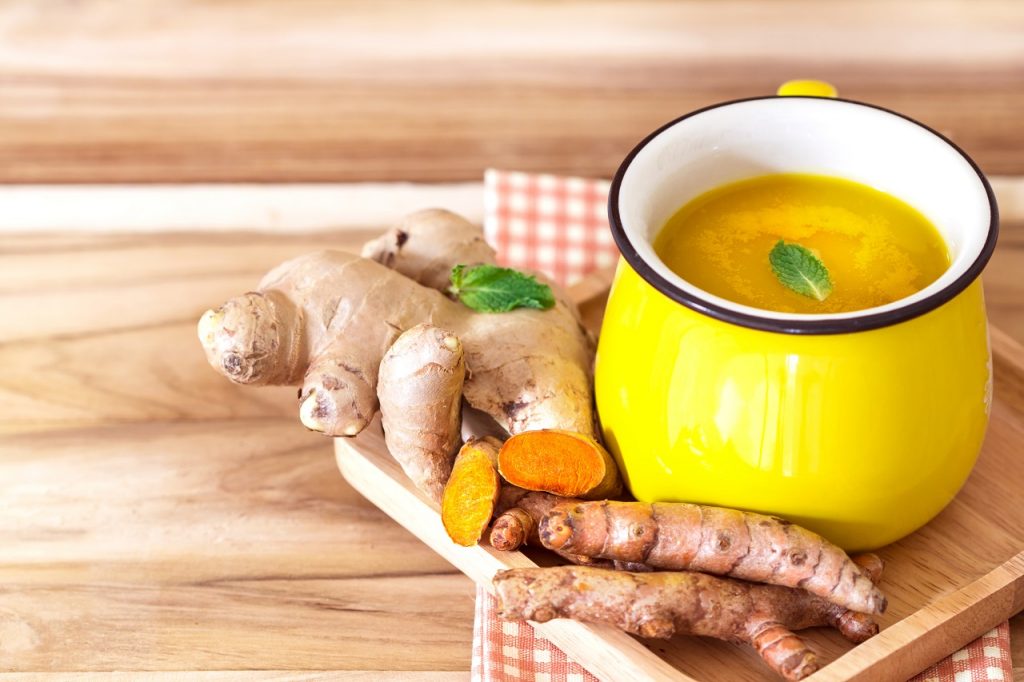 “Superfoods” are foods that have a substantial amount of nutrients and very few calories. They contain a high volume of minerals, vitamins, and antioxidants. But, do winter superfoods really exist?
“Superfoods” are foods that have a substantial amount of nutrients and very few calories. They contain a high volume of minerals, vitamins, and antioxidants. But, do winter superfoods really exist?
Do Winter Superfoods Really Exist?
Some winter foods do have a powerful impact but it’s your overall diet that really matters. Enriching your diet with nutrient-rich foods may help deal with issues such as joint problems, weight gain, constipation, dry skin and hair fall in winter and let you enjoy good immunity, good skin and overall good health. Let’s look at a few foods which may be considered as Winter Superfoods.
- Pearl Millet /Bajra: is a versatile food rich in fibre, magnesium, potassium and vitamin B. It promotes heart health, controls BP, muscle gain and helps you get dense, frizz-free hair with great volume. The high iron content plays a vital role in curing anaemia and can help to strengthen your bones as well. It is a heating grain, so it should be had in winters only. You can use Bajra to make malt, bhakri, ladoo, khichdi, cookies, uttapam, idli and dosa.
- Green Vegetables: Add green leafy vegetables to your meals to fight infections and boost immunity. These are excellent sources of fibre, folate and carotenoids, antioxidants, vitamins C and K and the minerals iron and calcium. Include palak, methi, sarson, pudina, moringa and green lasun to your diet. Green lasun boosts immunity and alleviates the burning sensation in hands and feet due to its anti-inflammatory properties. You can add them in rotis, dals, juices, soups and chutneys.
- Root Vegetables: Include all kinds of root vegetables in your diet, especially during the winter season. Sweet potatoes, broccoli, brussels sprouts, turnip and its leaves have antioxidant properties, vitamin C, are rich in beta carotene, fibre, vitamin A, and potassium. Regular consumption can help in curing constipation, improving immunity and reducing inflammation. Beets are also sources of anthocyanins, that have been linked to lower instances of heart disease, and nitrate – which improves the dilation of blood vessels. You can make soups, tikkis, sabzis or simply roast them.
- Seasonal Fruits: Citrus fruits are bursting with Vitamin C, fibre and antioxidants, making them ideal during winter. Citrus fruits like oranges, grapefruits, pomegranates, kiwi, guava, amla and lemons are also high in minerals and phytochemicals that help protect the body from infections and pathogens. They help in enhancing your immunity, reducing hair fall, improving skin and digestive health. Eat a fruit in the morning and the evening as a snack. If you find Amla too sour, consume it with a dash of salt and black pepper or in the form of instant powders.
- Ghee: is an invaluable source of vitamins, minerals and healthy fats. It helps with joint lubrication, skin hydration and keeps the digestive system functioning well. It can help you boost immunity and prevent yourself from falling sick. Cook your meals in ghee or top your dal, rice, roti, etc. with it.
- Til/Sesame Seeds: are a good source of calcium, essential fatty acids, vitamin E and are good for bones, skin and hair. It helps you maintain body temperature and keeps you warm and energetic during winter. Add sesame seeds to your roti, chikki, gajak, ladoo and chutney.
- Nuts: Peanuts have more protein than any nut (7g per serving), containing more than 30 essential vitamins and minerals, and are a good source of polyphenols, fibre and good fats. Daily intake of almonds and walnuts lower bad cholesterol, control blood sugar levels and reduce inflammation. They are packed with antioxidants, vitamin E and magnesium. They’re also rich in omega 3 and have anti-inflammatory properties. We can have soaked nuts, add them in ladoos, chikkis, granola bars or simply have them as snacks.
- Turmeric: is known as a therapeutic superfood due to its anti-bacterial, anti-fungal and anti-inflammatory properties.Turmeric can help reduce inflammation and fight infections. Make the famous “Haldi Doodh” or a pickle with fresh turmeric.
- Honey: is another energetic superfood to look upon for winters. You can use it as a substitute for sugar. Mix honey with your tea and sip it every morning to fight cold, sore throat and other infections.
- Gond: keeps the body warm, protects against the cold, treats cardiovascular, chronic kidney diseases, lubricates the joints and strengthens the bones. It also helps one manage menstrual problems and combat gas issues. You can turn gond into ladoo or panjiri mixture i.e. a mix of gond, wheat flour, jaggery, ghee, nuts and cardamom.
- Garlic: is a tasty herb that has high amounts of calcium, potassium as well as certain sulphuric compounds that are good for getting rid of infections. You can make chutneys, add it to soups and dals. You can also have crushed garlic with honey in the morning.
We hope these “Winter Superfoods” help you make a positive and healthy lifestyle change. For more on winter and nutrition, click here or speak to an expert by subscribing for GOQii’s Personalised Health Coaching.
#BeTheForce
 Inflammation is linked with so many serious illnesses such as diabetes, heart diseases, asthma, arthritis, etc. The use of anti-inflammatory drugs is very common and sometimes with no alternative as well. As they say, prevention is always better than cure! Eating anti-inflammatory food is a natural solution without any side effects. During winter, there’s less flow of blood which makes the joints colder and stiffer – leading to inflammation. The pain receptors become more sensitive in winters which result in pain, swelling in joints and other parts of the body.
Inflammation is linked with so many serious illnesses such as diabetes, heart diseases, asthma, arthritis, etc. The use of anti-inflammatory drugs is very common and sometimes with no alternative as well. As they say, prevention is always better than cure! Eating anti-inflammatory food is a natural solution without any side effects. During winter, there’s less flow of blood which makes the joints colder and stiffer – leading to inflammation. The pain receptors become more sensitive in winters which result in pain, swelling in joints and other parts of the body.


